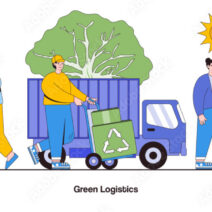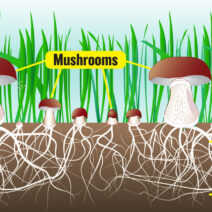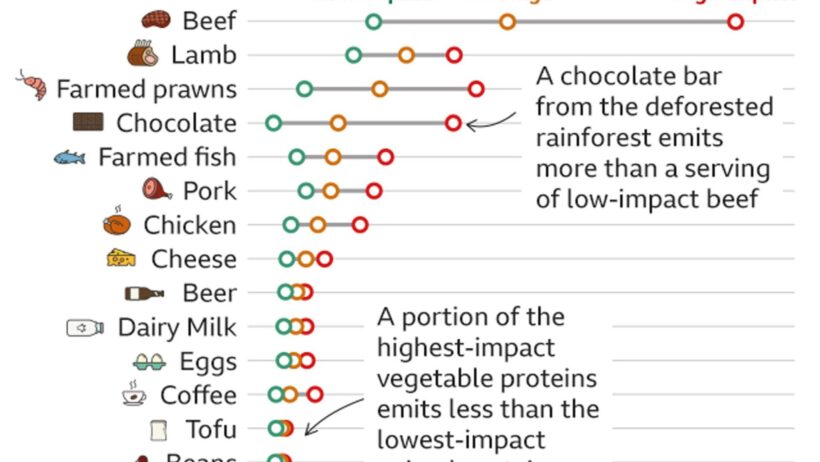Meat consumption is a deeply ingrained aspect of many cultures and diets worldwide, yet its effects on the environment—and specifically, on global warming—are increasingly becoming the focus of scientific research and public debate. Have you ever pondered how much your dietary choices contribute to the planet’s warming? It is a playful inquiry, but it also opens the door to a challenging discourse on climate change and sustainability.
The livestock sector is a significant contributor to global greenhouse gas emissions, accounting for approximately 14.5% of current emissions as highlighted by various research studies. This percentage, while seemingly not alarming at first glance, is quite substantial when one considers the various sources of emissions such as transportation, industry, and residential energy use combined. Cattle, sheep, and goats generate methane – a gas that is 28 times more potent than carbon dioxide over a century. Understanding this pivotal point could prompt one to reevaluate dietary habits for the sake of ecological balance.
To comprehend the impact of meat on our climate, it’s critical to delve into the concept of a carbon footprint. Every product we consume contributes to the sum of greenhouse gases released into the atmosphere, and animal agriculture has a disproportionately large footprint. For instance, beef and lamb often top the charts, embodying the environmental costs of land-use changes, feed production, and livestock management. These factors culminate in deforestation, soil degradation, and loss of biodiversity, which exacerbate climate change.
Transitioning from the general to specifics, consider the production journey of a single hamburger. From the grain feed that requires vast tracts of land—often achieved through deforestation—to the methane emissions generated during digestion, the processes involved are arduous and carbon-intensive. This multilayered production chain invites a moment of reflection. Could choosing a plant-based diet diminish your ecological footprint?
The ecological ramifications do not cease at emissions; water use is another critical concern. The meat industry is notoriously water-intensive. To produce a mere pound of beef, more than 1,800 gallons of water may be required. In contrast, cultivating crops such as lentils, beans, or chickpeas demands a fraction of that quantity. This presents a formidable argument for the reduction of meat in favor of more sustainable plant-based diets, particularly in regions grappling with water shortages.
But what about animal welfare and ethical considerations? The conventional methods employed in livestock farming frequently raise moral questions. Concentrated Animal Feeding Operations (CAFOs) showcase an industrial farming approach that prioritizes efficiency over animal welfare. The conditions under which livestock are raised can be severe, leading to a dichotomy between ethical eating and environmental sustainability. Thus, adopting a more conscientious diet not only supports ecological health but also reflects compassionate values.
Reflecting on dietary choices is an important step, but it’s equally crucial to address the social and economic dimensions associated with these choices. The transition to sustainable eating practices does present challenges, particularly in areas with limited access to fresh, plant-based foods. Food deserts, where residents lack easy access to nutritious options, complicate the movement toward a sustainable diet. Recognizing these inequities is essential for a holistic approach to addressing the climate crisis.
This is where collective action and advocacy come into play. Supporting local farmers, sharing resources, and pushing for policy changes can enable more equitable access to sustainable food sources. Initiatives aimed at improving agricultural practices not only help mitigate climate change but also create opportunities for community resilience. By prioritizing local food systems, we nourish not only ourselves but also our communities and the planet.
Change, however, does not solely rest on the shoulders of individuals. Restaurants, schools, and corporations play a vital role in shaping dietary habits. For example, introducing meat-free days in schools can encourage children to explore plant-based options from a young age. Similarly, restaurants can emphasize vegetarian and vegan selections on their menus, demonstrating that sustainability can harmonize with culinary creativity.
The introduction of alternative proteins also heralds a potential revolution in how we think about food sources. Emerging technologies are innovating ways to produce lab-grown meat or plant-based alternatives that mimic the taste and texture of traditional meat products without the environmental toll. These advancements could pave the way for a future where meat consumption no longer has to equate to exacerbating the climate crisis.
As the conversation evolves, it’s imperative to acknowledge the indigenous and ancestral knowledge systems that have long championed sustainable eating practices. Many indigenous cultures inherently practice respect for the land, which can contribute valuable insights into regenerative agriculture and sustainable livestock management. Learning from these communities can enrich contemporary discussions around food systems and climate change.
In conclusion, the ramifications of meat consumption on global warming are profound and multifaceted. Initiating a personal challenge to reduce meat intake could serve as an act of defiance against climate change, spurring a ripple effect towards a more sustainable society. The interplay between food systems and climate health invites exploration, advocacy, and innovation. Choices made at the dinner table may indeed be the quiet yet powerful revolution that our planet desperately needs.








